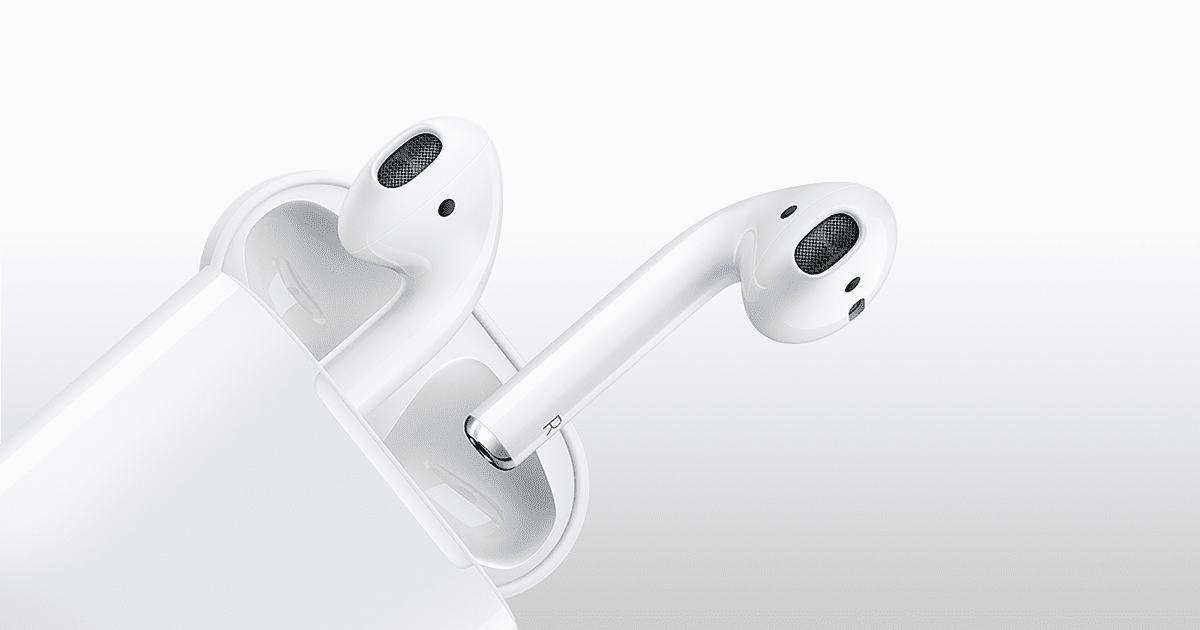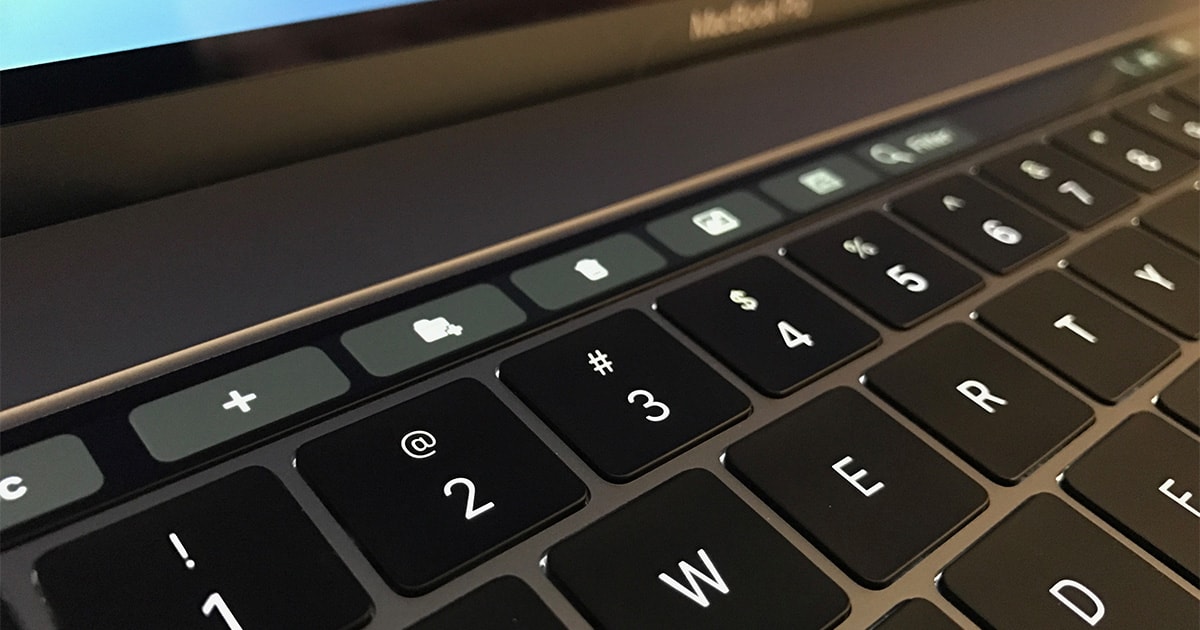Apple’s Underappreciated Technical Evolution
Apple has developed an interesting approach to making our lives better. Namely, as various technology elements are developed and then shipped, each seeks to solve a particular problem we have. Sometimes, the problem is intrinsic to our lives, such as answering the iPhone when it happens to be out of reach—with an Apple Watch. Sometimes, the problems to be solved are brought on by the solutions themelves. The iTunes app is a good (or bad…) example.
The Particle Debris article of the week comes from someone I frequently mention: Jonny Evans. His article, “10 New Apple Technologies Introduced in 2016.” reminds us all that Apple is always at work doing the little things that often go unnoticed. And that got me thinking….

Apple’s AirPods. We don’t get something like this every day.
The Excitement in Our Lives
Apple has been successful by figuring out what we need next. That often takes the form of a single encapsulated product like the iPhone or the AirPods. We eagerly get our head around this kind of a package concept. It, whatever “it” is, comes in a box. We open it with glee and are immersed in its joy. Apple does an amazing amount of research to make sure the experience is something we can appreciate with a smile.
In an era where so many products from other companies are rushed to market, sometimes it seems in beta form, it’s very satisfying to buy a new Apple product, like an Apple Watch or AirPods, that are complete and pleasurable out of the box. But it’s also true that products like that don’t come around every month. It’s the in-between time where Apple engages in those continuous improvements that go under appreciated.
That’s where the article above by author Evans comes in. He cites developments in ceramics, differential privacy, the Watch’s S2 chip, waterproofing technology, and the MacBook Pro keyboard, amongst others, as examples of how, gradually, things get better with Apple products in a way that’s often under the radar. Or else, not mentioned, something like Swift Playgrounds offers up a pleasant surprise.
My suspicion is that Apple expected us all to appreciate the MacBook Pro Touch Bar as one of those highly appreciated refinements. But the timing was wrong. Apple gave us a great refinement at the end of the year when something meatier was expected. What the community was hungry for was a splash.

The MBP’s Touch Bar is one of those periodic, essential refinements.
Splash
2016 was a tough year for Apple. The company didn’t ship any new desktop Macs. The 12.9-inch iPad Pro didn’t get an A10X upgrade. The Apple TV didn’t get upgraded to 4K/UHD/HDR. The result is that we didn’t have the opportunity to revel in many of of those glorious unboxing experiences. Those periodic revitalizations make us feel as if we’re plunging into the future. When we don’t get them very often, the withdrawal symptoms are severe. Even if we’re not ready to upgrade, it’s important to have that special something to dream about.
In that sense, Apple’s ability to move forward with new products has a profound effect on our psyche. The company that we love is cranking out the future, and we yearn to be in sync. Or, at worst, only a step behind. However, when Apple has trouble shipping new, exciting products, we feel as if our beloved bandwagon has a broken wheel. We get cranky.
That’s why it’s important to look at what Apple does, in little ways, to offset that negative psychology. Technology bursts are glorious, but continuous refinements are also important.
The Pace of Apple Time
Anther factor to consider is that those who write about Apple do so every day. Apple’s progress is viewed at very fine-grained scale. However, the average customer shows up in an Apple store much less often. All those many refinements accumulate. To many, they must seem overwhelming. For many, a new MacBook or MacBook Pro with only USB-C ports must seem exciting, perhaps a little fightening. The Apple Watch Series 2 is only few months old. The 9.7-inch iPad Pro is still less than a year old.
The accumulation of small improvements by Apple, seen at a different resolution of the timeline, can aggregate to to the point of being scary to many customers. After all, most Apple customers only upgrade every few years. To them, just keeping up at that interval is a challenge.
It’s almost like Einstein’s relativity theory. For observers on that classical thought experiment’s fast moving train, time moves differently than for those observers at rest. And so, one’s perception of Apple’s progress depends on how fast your own train is moving.
Apple has its work cut out in 2017, and I’m looking forward to some big splashes. But, along the way, watch for all those little things Apple does to make our lives better. We need those as well, and that attention to detail is fundamental to how Apple works.
Next page: The news debris for the week of January 9th. An Apple report card for 2016.
Page 2 – News Debris for the Week of January 9th
An Apple Report Card for 2016
Over at sixcolors, Jason Snell has compiled a report card on Apple’s performance in 2016. A panel of Apple experts was asked to weigh in on Apple in key areas: The Mac, iPhone, iPad, Apple Watch, Apple TV, cloud services and so on. The responses and grading are honest and blunt.
What’s notable about this article is that it reveals the state of mind of many expert observers, not just one. By enlisting many different voices, one can begin focus on the real, consensus problems. This carries real weight. The report is well worth your time.

Highly acclaimed Westworld. Image credit: HBO
Dan Moren at Macworld explains his feelings about Apple getting into original TV content. “Why Apple is making its original TV content push now.” Author Moren makes some good points, and we’ll just have to see how it all pans out.
Personally, I have some reservations about what Apple is doing there. No matter how good the content, it will be critiqued heavily. Plus, it seems like a me-too project from a company with too much money to spend. And it’ll never compete successfully with Netflix because of its tentative, test-the-waters nature. Netflix has so much content, we don’t characterize Netflix by the content. Many will for Apple’s few offerings. I suspect Apple’s tentative content will get lost in the noise and eventually fade away unless Apple makes a major commitment.
Related
Quartz weighs in with its review of the new AirPods. “AirPods are Apple’s most Apple-like product in years.” The highest possible praise: ” These wireless headphones do something that few Apple products have in the Tim Cook era—they just work.”
For the first time in what feels like a long time, Apple has created a product that doesn’t try to do too much, and does what it’s supposed to do very well.
After you read this review/analysis, you’ll be a believer.
Rene Ritchie at iMore has authored a fascinating piece about “Merging macOS and iOS at the app level.” The idea is this: all of Apple’s native apps would become, at a core code level, the same. The UI then depends on which device it runs on. It’s a great read.
Finally, Glenn Fleishman has written a great article on how to more completely “Lock down your Mac with system and networking monitoring tools.” Author Fleishhman goes into a little bit of history and state of the technology of macOS security. Over and above the software tools he describes is this bit of wisdom.
In the olden days, I used to run firewall software, anti-virus software, and some other protective extensions. OS X was young, and there had been malware for System 7, 8, and 9. However, Apple had a very small percentage of the market share, and hadn’t built OS X to allow its email software to execute code. Security through obscurity worked.
All of those different pieces of monitoring and protection software did slow things down. I gradually stripped them off, as I felt Apple had improved the OS or certain kinds of threats disappeared. Now, I find myself in the reverse position, layering amulets one on top of each other.
Author Fleishman is an expert in these matters and offers some great advice. Even if you don’t implement all the techniques he describes right away, you’ll want to bookmark it for a revisit on a snowy Saturday afternoon.
______________________
Particle Debris is a generally a mix of John Martellaro’s observations and opinions about a standout event or article of the week (preamble on page one) followed on page two by a discussion of articles that didn’t make the TMO headlines, the technical news debris. The column is published most every Friday except for holidays.
0 Response to "Apple’s Underappreciated Technical Evolution"
Post a Comment